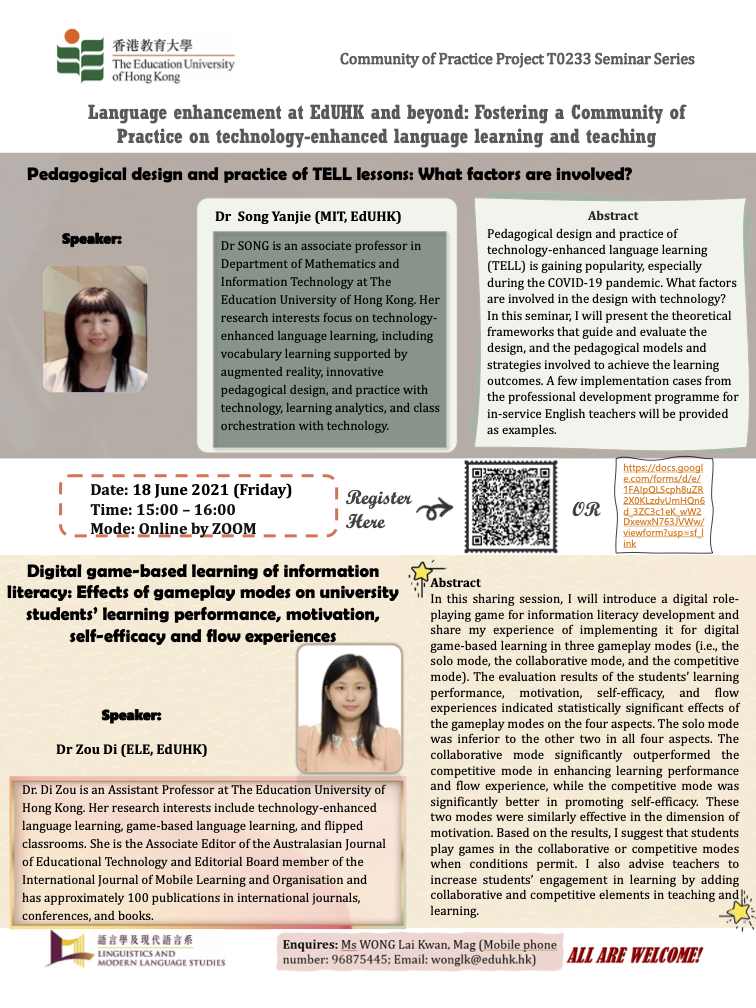CoP Project Sharing Session Series
Eighth Sharing Session
Date: 18 June 2021 (Friday)
Time: 3:00-4:00pm
Mode: Online by ZOOM
First Speaker: Dr Song Yanjie (MIT, EdUHK)
Title: Pedagogical design and practice of TELL lessons: What components are involved?
Abstract:
Pedagogical design and practice of technology-enhanced language learning (TELL) is gaining popularity, especially during the COVID-19 pandemic. What factors are involved in the design with technology? In this seminar, I will present the theoretical frameworks that guide and evaluate the design, and the pedagogical models and strategies involved to achieve the learning outcomes. A few implementation cases from the professional development programme for in-service English teachers will be provided as examples.
Bio:
Pedagogical design and practice of technology-enhanced language learning (TELL) is gaining popularity, especially during the COVID-19 pandemic. What factors are involved in the design with technology? In this seminar, I will present the theoretical frameworks that guide and evaluate the design, and the pedagogical models and strategies involved to achieve the learning outcomes. A few implementation cases from the professional development programme for in-service English teachers will be provided as examples.
Second Speaker: Dr Zou Di (ELE, EdUHK)
Title: Digital game-based learning of information literacy: Effects of gameplay modes on university students’ learning performance, motivation, self-efficacy and flow experiences
Abstract:
In this sharing session, I will introduce a digital role-playing game for information literacy development and share my experience of implementing it for digital game-based learning in three gameplay modes (i.e., the solo mode, the collaborative mode, and the competitive mode). The evaluation results of the students’ learning performance, motivation, self-efficacy, and flow experiences indicated statistically significant effects of the gameplay modes on the four aspects. The solo mode was inferior to the other two in all four aspects. The collaborative mode significantly outperformed the competitive mode in enhancing learning performance and flow experience, while the competitive mode was significantly better in promoting self-efficacy. These two modes were similarly effective in the dimension of motivation. Based on the results, I suggest that students play games in the collaborative or competitive modes when conditions permit. I also advise teachers to increase students’ engagement in learning by adding collaborative and competitive elements in teaching and learning.
Bio:
Dr. Di Zou is an Assistant Professor at The Education University of Hong Kong. Her research interests include technology-enhanced language learning, game-based language learning, and flipped classrooms. She is the Associate Editor of the Australasian Journal of Educational Technology and Editorial Board member of the International Journal of Mobile Learning and Organisation and has approximately 100 publications in international journals, conferences, and books.
